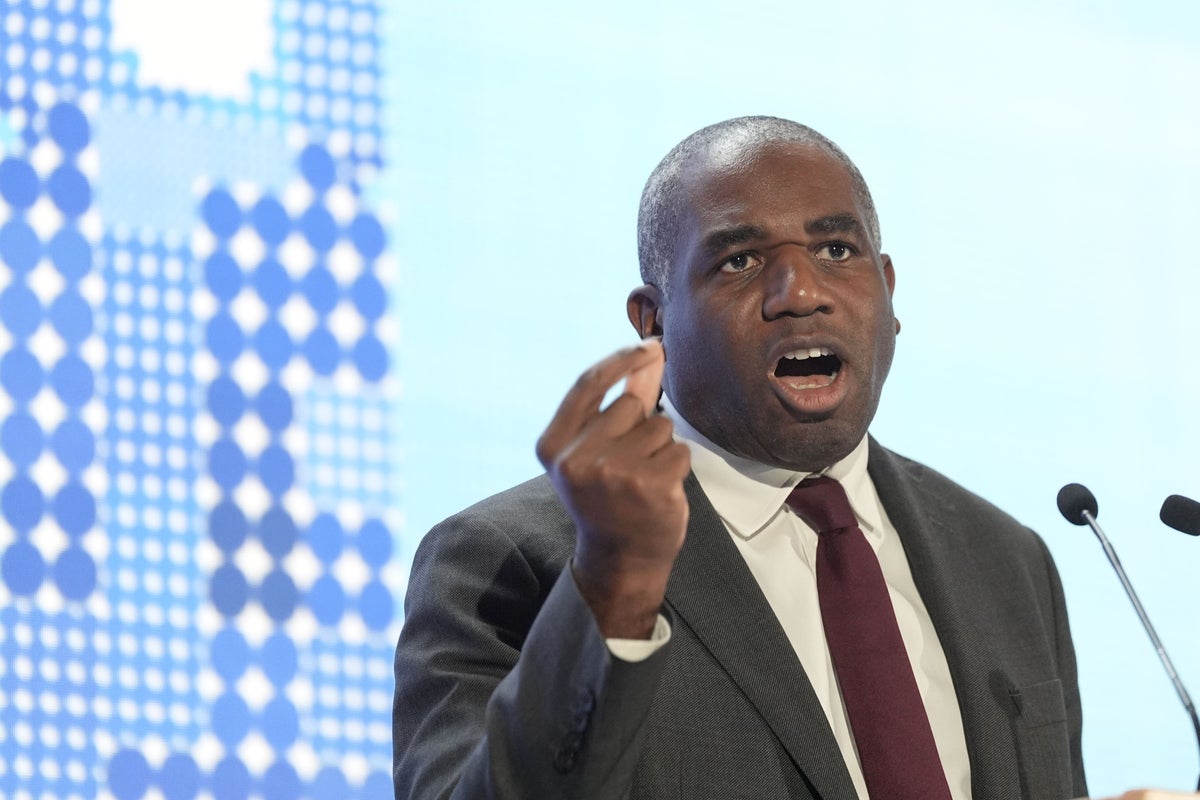
Deputy Prime Minister David Lammy says comments by a Reform MP about the number of ethnic minorities appearing in television adverts “normalised” and marked a return to “flagrant racism”.
Sarah Pochin said she was driven “mad” by seeing “adverts full of black and Asian people”, comments that sparked widespread criticism.
Writing in The Independent to mark Black History Month, Mr Lammy said many people were “disgusted” by the remarks, criticising those “who would have us believe that we are more divided than we really are”.
“They feel the peril of such comments becoming normalised and stand with us against the return of such flagrant racism,” he said.
Ms Pochin, the MP for Runcorn and Helsby, was responding to a viewer on TalkTV who complained about the demographics of advertising.
She told the viewer they were “absolutely right”, adding: “It drives me mad when I see adverts full of black people, full of Asian people. It doesn’t reflect our society, and I feel that your average white person, average white family is not represented anymore.”
She later said her comments were “phrased poorly” and apologised “for any offence caused”. She said she was trying to say many adverts were “unrepresentative of British society” .
Resisting calls to suspend her from the party, Reform leader Nigel Farage said he did not believe the “intention” behind her comments was “racist” and suggested they should be read in the context of “DEI (diversity, equity and inclusion) madness”.
Mr Lammy warned against voices seeking to stoke division.
“Some people would have us believe that we are more divided than we really are,” he wrote.
“They pit neighbour against neighbour, feeding fear and fuelling outrage.”
Reflecting on his own experiences of racism, he said he grew up “terrified” of skinheads who “patrolled our neighbourhoods, spreading their hate” and recalled one occasion when he and his sister were spat on as young children.
He said what stayed with him most was not the hatred he faced, but the solidarity of those who stood up to it.
“What I remember most vividly, though, is the people who stood up to them,” he said.
“The volunteers of every race and background, standing shoulder to shoulder, refusing to be intimidated. Most of them weren’t politicians or activists – they were our neighbours and our friends.”
“Good people who knew that what was happening was wrong – and were determined to play their part in putting it right.”
The Justice Secretary highlighted the contributions of black political leaders, including Bernie Grant, Britain’s first black MP, and Paul Boateng, the first black Cabinet minister, as well as civil rights leader Martin Luther King Jr.
“That spirit is at the heart of the Britain I know and love – where decent people refuse the lure of hate and instead choose the path of unity,” he said.
